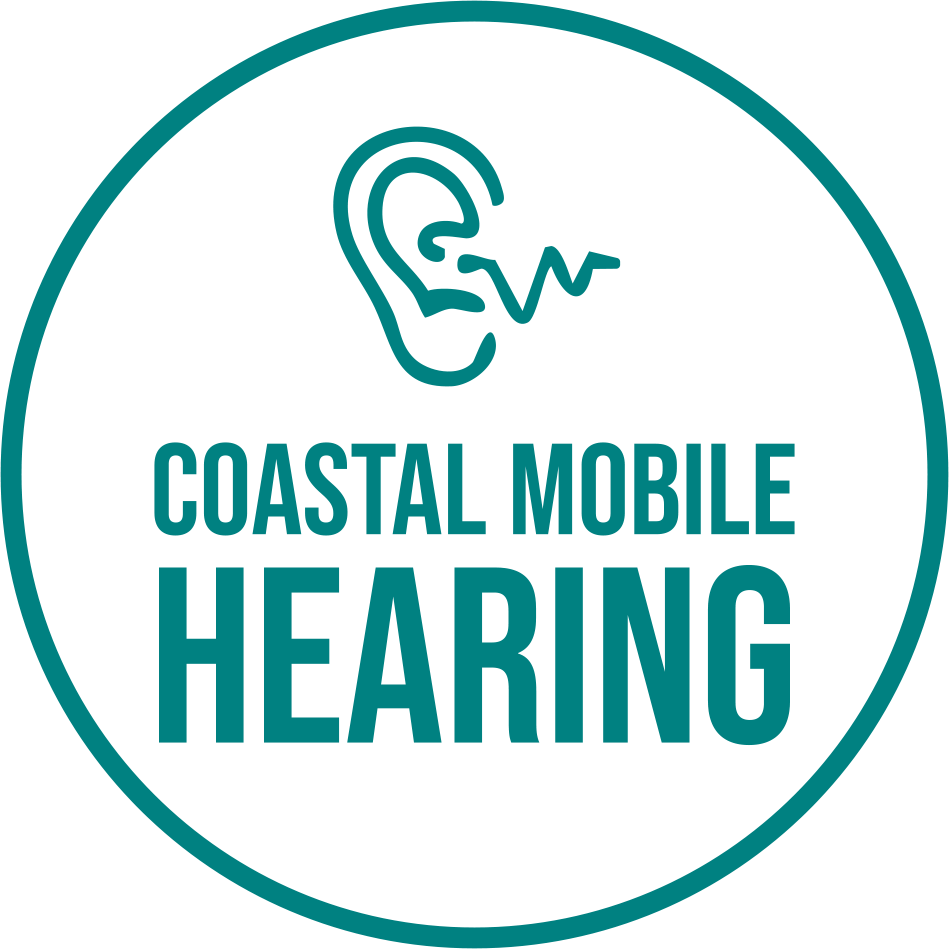The Role of Hearing Aids in Virtual Meetings
Virtual meetings have become a regular part of how we work, stay in touch
Serving the North Carolina Coast | Based in Wilmington, NC
(910) 558-0025
By: admin | September 25, 2025
Hearing loss can result from a variety of factors like aging, genetics or exposure to loud noises. However, an often-overlooked connection is the impact diabetes can have on hearing. Many people aren’t aware that diabetes and hearing difficulties can be linked. The connection between blood sugar levels and hearing isn’t always clear, which can make it easy to miss until symptoms appear. Whether you have diabetes or a family history of hearing issues, understanding how these conditions relate can help you manage your health more effectively. Being aware of this link allows you to address potential concerns earlier and make informed decisions about your care.
Diabetes affects the way your body processes food into energy. When you eat, your body breaks down food into sugar, which enters the bloodstream. Normally, this triggers the pancreas to release insulin, a hormone that helps sugar enter cells to be used as energy. In diabetes, however, either the body doesn’t produce enough insulin or the cells don’t respond properly, causing blood sugar levels to remain elevated. Over time, excess glucose in your blood can lead to health problems like heart disease, vision loss, kidney disease and even hearing loss. That’s why managing diabetes effectively is crucial to prevent these complications from developing or worsening.
Blood sugar plays a vital role in our bodies, serving as the main energy source for our cells. This includes the delicate cells in our ears that allow us to hear. When blood sugar levels aren’t properly managed, it can affect these crucial cells. High blood sugar levels can damage the tiny blood vessels in your inner ear, just as they can harm other parts of your body. This damage to your ear’s blood vessels could lead to hearing loss over time. So, maintaining balanced blood sugar is not only vital for overall health but also for preserving good hearing health.
Research shows that diabetes can affect more than just blood sugar levels – it may also impact your hearing. High blood sugar can damage the tiny blood vessels inside the ear, which are essential for proper hearing function. When these vessels are harmed, the cells that help process sound may not work as well, leading to gradual hearing loss. This connection highlights how diabetes can influence different parts of the body in ways people might not expect.
Knowing about this link can help you take a more complete approach to your hearing health. Managing diabetes isn’t only about controlling blood sugar – it also means paying attention to other areas like your hearing. Regular visits to a hearing specialist can help detect any changes early, allowing for timely care. Combining professional hearing tests with your regular diabetes care creates a better overall plan for maintaining your well-being.
When you have diabetes, your body’s ability to manage blood sugar levels is compromised. This can lead to high blood sugar levels that may damage various parts of your body, including the small blood vessels in your inner ear. Damage to these tiny vessels can disrupt the normal functioning of your inner ear, which plays a crucial role in converting sound waves into signals that our brain interprets as sound. Over time, this disruption can result in hearing loss.
This shows the importance for individuals with diabetes to monitor not only their general health but also their hearing health. Regular check-ups with a hearing specialist are important for early detection and management of potential hearing loss associated with diabetes. Maintaining good control over your blood sugar levels is key – it benefits not just your overall health but also helps protect your precious ability to hear.
Recognizing the early signs of hearing loss is especially important for people managing diabetes. Catching these changes early can lead to timely treatment and help maintain overall health. If you find yourself often asking others to repeat themselves or notice ringing in your ears, these could be signals that your hearing is being affected. Addressing these symptoms by consulting a hearing specialist can prevent further complications and support your well-being over time.
Hearing tests are an important part of understanding how diabetes might be affecting your overall health. These evaluations help check how your ears respond to different sounds and can show whether there have been any changes in your hearing over time. Because diabetes can impact circulation and nerve function, regular hearing checks can provide useful information about how well your auditory system is working.
A typical hearing test might involve listening to a range of tones at different pitches and volumes. You may also be asked to repeat words to see how clearly you can understand speech. These tests don’t take long and are done in a quiet space using headphones. The results help your hearing specialist learn more about how sound travels through your ears and where any hearing difficulties might be happening.
If you have diabetes, these tests can be a valuable part of managing your health. Subtle hearing changes might not be obvious at first but catching them early can help you stay ahead of potential issues. Keeping track of your hearing over time can also make it easier to choose the right support if changes do occur.
There are several treatment options for hearing loss, and hearing aids are among the most common. These small electronic devices help improve how clearly you hear everyday sounds, especially conversations. The type of hearing aid you need often depends on your level of hearing loss and your lifestyle. In-the-canal (ITC) hearing aids are discreet and fit partially in the ear canal. They’re often chosen by adults with mild-to-moderate hearing loss who want something less visible and easy to manage.
In-the-ear (ITE) hearing aids fill more of the outer bowl of the ear and are a bit easier to handle, making them a good choice for people with mild-to-moderately-severe hearing loss. Behind-the-ear (BTE) hearing aids rest behind the ear and connect to a small earpiece. These are typically used for a wider range of hearing loss, from mild to profound and may be more suitable for children or individuals who prefer a device that’s easy to adjust. Working with a hearing specialist can help determine which style is the best fit based on your hearing needs and preferences.
Taking care of your overall circulation is one way people with diabetes can also support their hearing health. Activities like walking, swimming or stretching regularly can promote better blood flow, which benefits the small, delicate parts of the inner ear. While exercise is often discussed for heart or blood sugar benefits, it may also help protect your ears in the long run. Even moderate movement throughout the week can contribute to better hearing outcomes over time.
Another way to lower your risk is by paying close attention to any new or unusual changes in how you hear. This includes sounds seeming muffled, difficulty following conversations or hearing differently in one ear compared to the other. These signs might come on gradually, so staying aware of them is important. If you notice anything out of the ordinary, letting a hearing specialist know sooner rather than later can help guide the next steps. Early discussions often lead to better, more personalized care.
It’s also helpful to stay informed about how diabetes can affect other parts of your body, including your ears. Learning about the ways diabetes may influence hearing helps you to make more informed health decisions. You don’t have to wait for a problem to arise to start taking precautions. Simple awareness and regular communication with your hearing specialist can go a long way. Staying involved in your own care gives you more control and helps you stay ahead of any potential issues.
Managing both diabetes and hearing loss often involves building a consistent health routine that addresses the needs of both conditions. This typically includes taking medications as prescribed and monitoring blood sugar levels regularly to avoid sudden spikes or drops. High blood sugar over time may affect the small blood vessels in the ears, so keeping levels steady can help support hearing health. Working with your general practitioner allows you to stay informed about how your diabetes might influence other areas of your body, including your ability to hear. Making time for routine check-ups can help identify small changes before they become more serious.
In addition to medication, lifestyle habits also play a role in managing these conditions. A steady diet that includes fresh vegetables, lean protein and whole grains can help regulate blood sugar while supporting overall health. Staying active, even with light daily movement, can improve circulation, which may benefit your ears as well. Rest and stress management also matter – when your body is under less strain, it’s easier to manage both diabetes and hearing loss. Creating a balanced approach to your health can make it easier to maintain your well-being over time.
Regular visits with both your doctor and your hearing specialist can help you stay ahead of potential problems. These professionals can track changes, offer advice tailored to your needs and adjust your care plan as needed. It’s helpful to communicate openly about any new symptoms or concerns, no matter how small they seem. A hearing specialist that understands your health history can make managing two conditions more straightforward. Over time, this kind of support can help you feel more confident about maintaining your health and staying engaged in daily life.
While living with both diabetes and concurrent hearing loss may present challenges, there are plenty of ways available that can help manage these conditions effectively to ensure a better quality of life!
The connection between diabetes and hearing loss is one that requires both awareness and action. It’s about recognizing the importance of not only managing your blood sugar levels but also paying attention to your hearing health. This means regular check-ups with a hearing specialist should be just as much a part of your routine as visiting your doctor for diabetes care.
At Coastal Mobile Hearing, we understand the complexities of living with both diabetes and hearing loss. We’re here to guide you, offering personalized care tailored to meet your unique needs. Our team of hearing specialists are dedicated to helping you maintain good control over both conditions, ensuring an improved quality of life! Call us at (910) 558-0025 or visit our clinic in Wilmington, NC for more information about the connection between hearing loss and diabetes or to schedule an appointment.
Tags: hearing health facts, hearing loss and diabetes, hearing loss comorbidities

Virtual meetings have become a regular part of how we work, stay in touch
By: admin | December 21, 2025

Hearing loss can result from a variety of factors like aging, genetics or
By: admin | September 25, 2025
